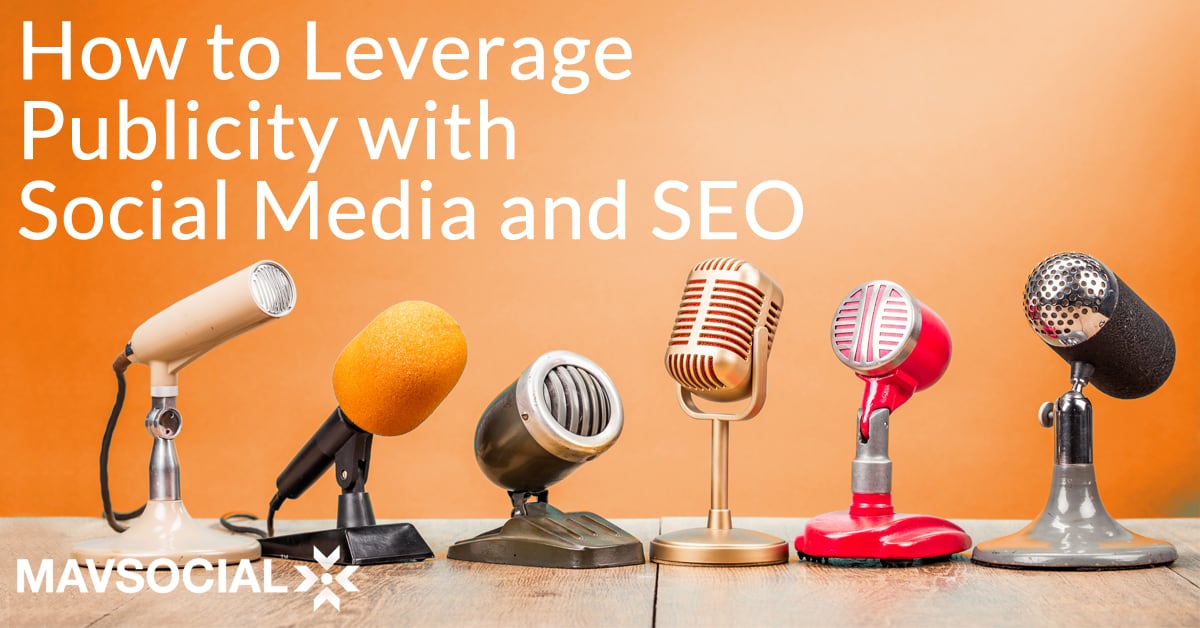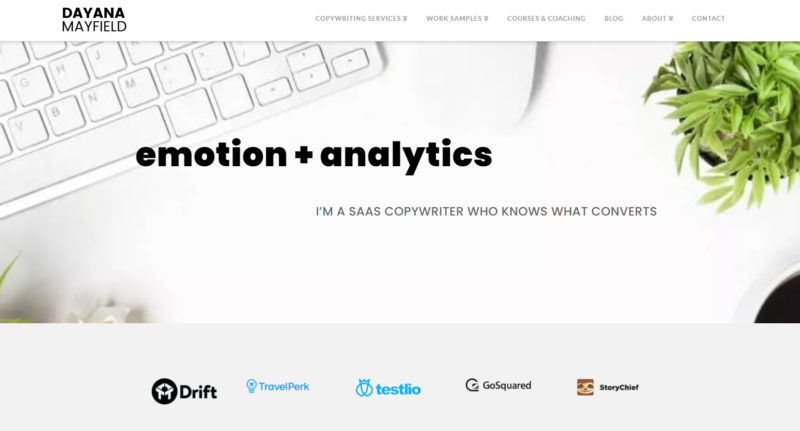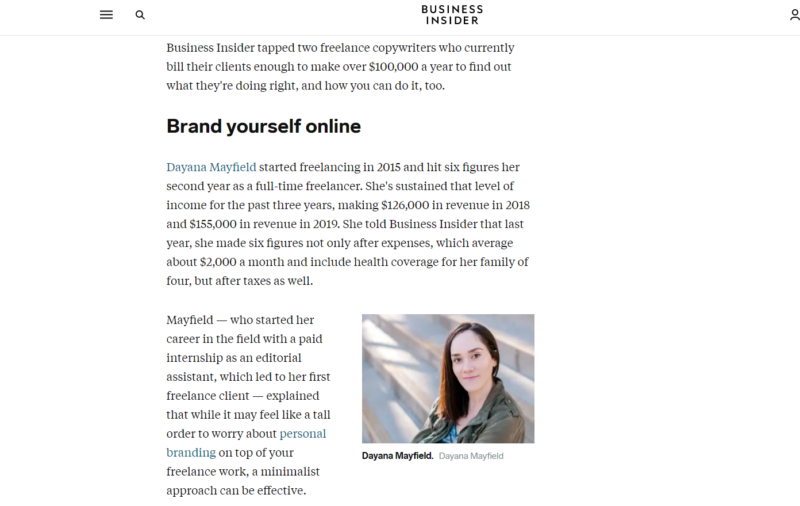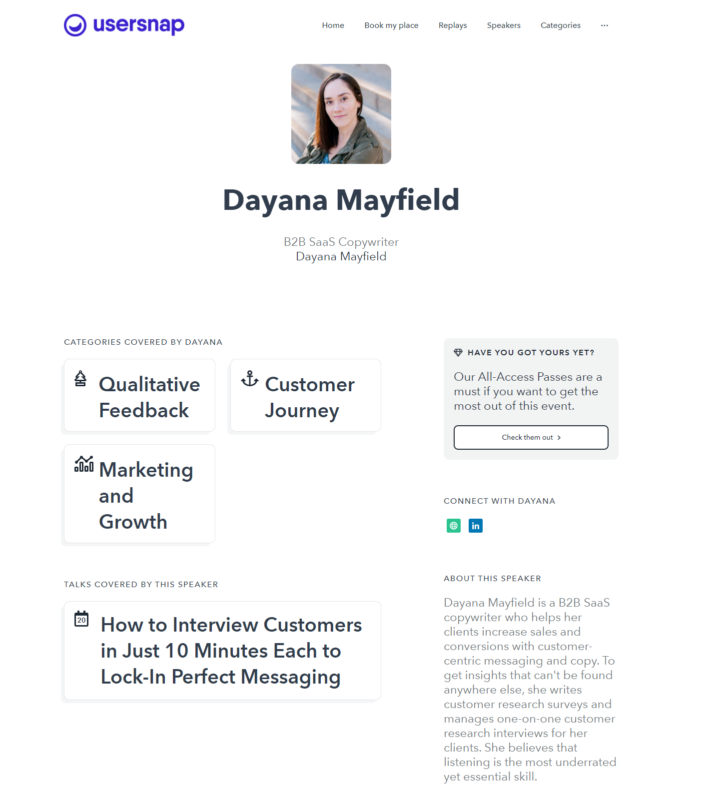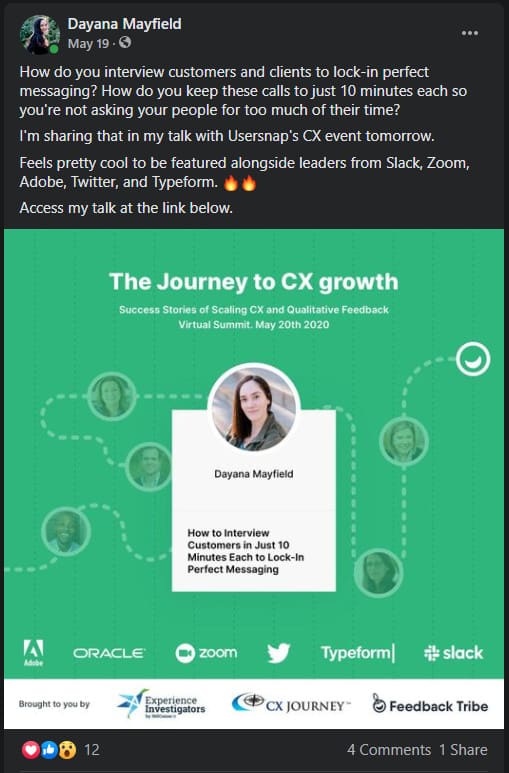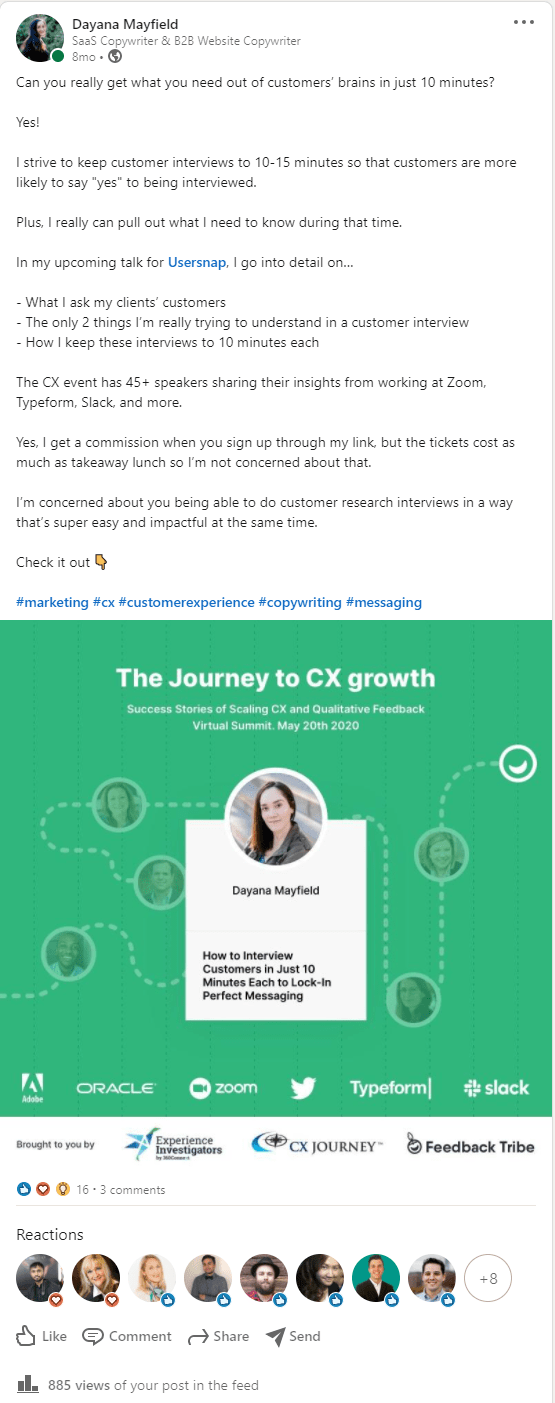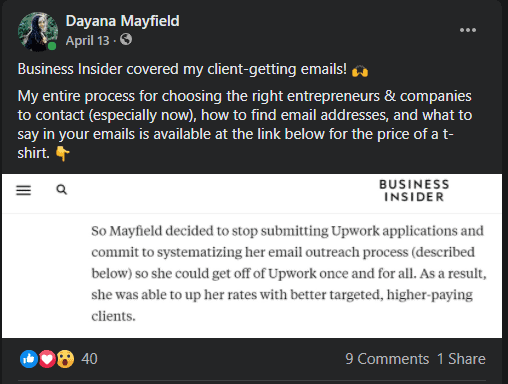Have you ever felt like publicity is pointless? Like it’s just for collecting logos?
When you learn how to leverage publicity with both social media and SEO, you can convert your press coverage into real sales.
In this post, we’re going to make pointless PR a thing of the past.
Keep reading for a simple step-by-step process for turning digital PR into valuable search rankings and high-performing social media posts that lead directly to sales.
Do the SEO prepwork to leverage publicity
To leverage publicity with SEO, you first need to optimize the homepage of your website.
Most of your digital press coverage will link directly to the homepage of your website, so you’ll want to make sure that the homepage is optimized to target a valuable keyphrase.
Why is this important?
One word: backlinks.
Along with quality content, backlinks are essential to ranking for your target keyphrases.
As you can see, the homepage of my freelance copywriting website targets the keyphrase “saas copywriter.”
Add your keyphrase in your meta description, page title, and hero headline or subheadline.
With the SEO optimization complete, my website is ready for publicity.
All of the backlinks I will acquire from the digital press coverage will help increase my chances of ranking for my target keyphrase.
Get publicity for your business
The next step is to actually get publicity for your business. Of course, there are several ways to get publicity. You can pitch editors or journalists, but let’s begin with the two simplest ways for time-pressed entrepreneurs and executives.
Respond to HARO queries
Help A Reporter Out is a website where you can answer journalists’ queries. Essentially, you become the source that they’re looking for. There are writers from small blogs as well as from well-known digital publications and print magazines.
Here’s a real HARO response I wrote to a reporter from Business Insider that landed me a feature:
Hello Robin,
I’ve been a 6 figure copywriter for over three years, and I started freelancing in 2015. Last year, I even made 6 figures not only after expenses but after taxes as well.
My tips are…
Find a profitable niche you enjoy – While I could have chosen any other of my personal interests, I decided to niche down in SaaS (software as a service) and marketing technology. Working with more profitable businesses allows me to charge professional rates for my services. This would have been hard working with small businesses. Plus, I truly love the B2B tech industry.
Outsource a predictable lead generation system to a virtual assistant – When I stopped having my VA run my Twitter and Instagram and instead outsourced email outreach to her, my leads skyrocketed! I now teach other freelancers how to outsource email outreach.
Brand yourself – It’s essential to stand out online. Your brand doesn’t have to be fancy, complicated, or expensive. For me it’s just my tagline “B2B SaaS copywriter” and using bold black font, plenty of white space, and the color green! Doing something is better than nothing. Keep it simple to start, and keep your brand consistent everywhere.
Please let me know if you want any edits!
Dayana Mayfield
One of my best HARO tips is to think outside of the box. My query was most likely selected because I provided unique, specific advice.
When the article was published, it included a link back to my website. Even though the link isn’t using my target keyphrase as the anchor text, it’s still a valuable link for my website.
Connect with relevant journalists
Another way to get publicity that isn’t as time intensive is to connect with journalists, event managers, and content managers in your industry on LinkedIn.
Think about it…you connect with target clients and customers on LinkedIn right? (If you’re not doing this yet, make sure to read our guide to LinkedIn marketing strategy for B2B companies).
Just like you connect with target customers, you should also connect with target reporters.
Find journalists who have covered your competitors and industry heavyweights and connect with them on LinkedIn. Also connect with content managers from relevant companies, as they might be able to feature you in blog posts, ebooks, summits, and more.
I gave a talk on conducting customer research interviews for Usersnap, and this opportunity came to me from the event manager, who was a connection on LinkedIn.
If we weren’t connected, she likely wouldn’t have known I existed, and wouldn’t have asked me to participate.
Promote your publicity on social media
When you get great publicity, you need to share it on social media.
Why? Because publicity is social proof. It’s a stamp of approval from the publication. And as we know, social proof is an important psychological tactic to use on social media.
When you share your publicity coverage to social media, it…
- Shows that you and your company are doing important things
- Helps nurture leads that have been considering working with you
- Gives you content to share that can directly lead to sales (post a screenshot of your publicity coverage and link to a relevant sales page instead of the publicity coverage itself!)
Create multiple posts for each piece of coverage
For best results, always create multiple posts for each piece of coverage.
You need to get the word out about your press coverage, so don’t be shy.
Here’s an example post:
For my Usersnap piece, I didn’t just talk about the upcoming event. I also shared a personal angle.
And of course, I let my followers know what they could expect to learn from the talk in a different post:
Posting once isn’t enough. Make sure to share your publicity coverage multiple times on each social media network you use.
Turn publicity into sales
As mentioned, you can turn publicity directly into sales.
How?
Link to your most relevant sales page, instead of linking out to the press coverage. Sneaky, right?
This post on Facebook immediately yielded $600 in sales for a $27 digital product.
Outsource digital PR to your VA or press assistant
The hardest part of getting publicity is actually getting publicity.
As a business owner or executive, it’s going to be extremely difficult to devote the time to digital PR that you should.
You can outsource digital PR to…
- Your virtual assistant
- Your freelance writer
- Your press assistant
- Your marketing manager
Your team can respond to HARO queries for you, pitch your business to podcast hosts, get guest posting spots, and more. For example, you could train your team in guest post outreach, and build a creative brief template for writing the guest posts and the 3+ social media posts.
When you leverage publicity with both social media and SEO, you increase sales through social proof, social media traffic, and search traffic.
SEO, publicity, and social media are the perfect trifecta.
You can learn more about outsourcing digital PR at Pitch & Profit.com.
